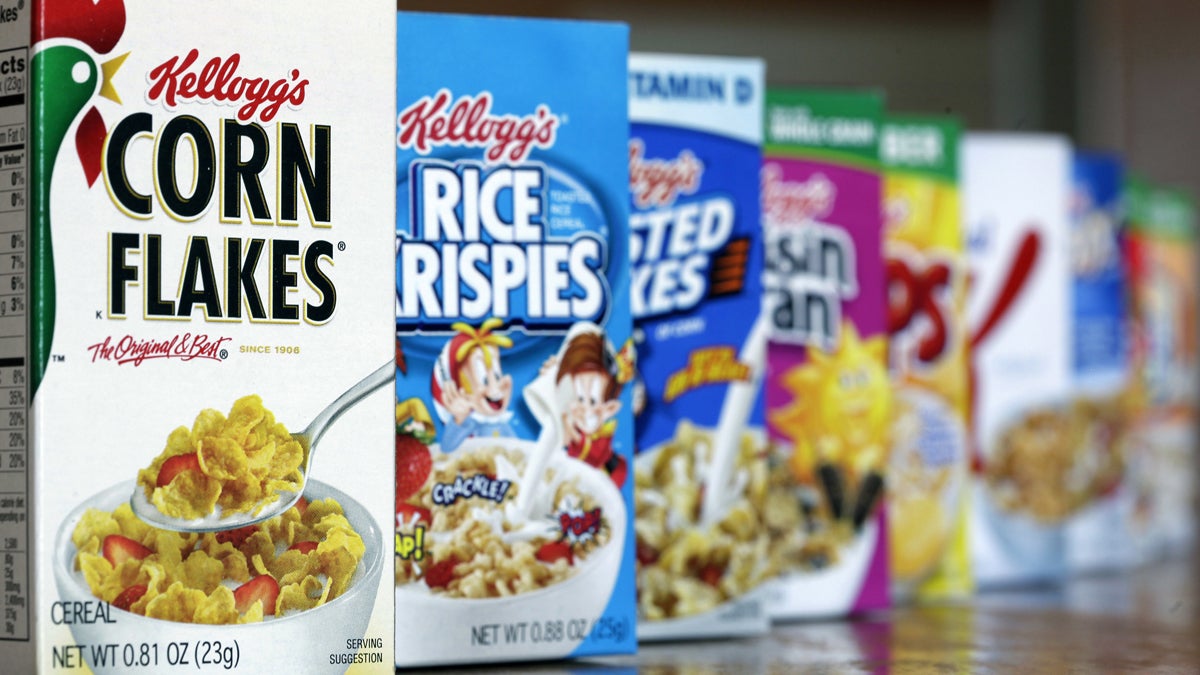Now with 30% more wit and sarcasm! … but no quinoa

In 2012 Kellogg began touting a distinguished-sounding “breakfast council” of “independent experts” dedicated to guiding its nutritional efforts. (AP Photo/John Raoux, File)
Rice Chex cereal has always been 100 percent rice, but now it boasts that it’s gluten-free. It never had gluten. But now that gluten is on the no-fly list, being gluten-free is a bragging point.
This would be like us proclaiming that we now contain “more than 90 percent water with life-enhancing oxygen and iron-rich hemoglobin.”
Products try to entice us in different ways. They trumpet the facts and statistics they want us to focus on, while they gloss over other glaring truths. Their advertising uses current buzzwords, like “cage-free” and “gluten-free,” to tout basically unchanged products as “new and improved.” They are telling us what we want to hear.
Back in the day, we ate saltine crackers, but we didn’t brag about it. Now a lot of products boast about their sprinkle of sea salt. Dark chocolate, ice cream, and flatbread crisps all benefit from cozying up to the mineral. All those years at the beach! How misguided we were when we hosed our kids off. If only we had recognized the potential greatness of sea salt, we could have been in on the ground floor of this trend.
Bad comedians and their dirty jokes have tried for years to convince us that size matters. So do some products. The package of paper towels that reads “6 mega rolls = 9” or “8 super-absorbent rolls = 12” doesn’t fool us. They want us to think we’re getting more for our money, even if that isn’t the case.
We get less applesauce for our money with the new “easier to handle” jar. It’s indented so we can hold it, but it’s 5 ounces smaller than the original version. If politicians followed this formula of turning a bad attribute into a desirable quality, we’d hear them crowing, “Caught in fewer sex scandals than my opponent!”
What used to be considered desirable has also changed over the years. In the old days, a box of Alpha-Bits cereal noted with pride that it was “sugar-sparkled.” Not a good thing today. The marketing team has changed its tune, and the product now has “20g of whole grain per serving, 12 essential vitamins and minerals, and no high-fructose corn syrup.”
A box of Cheerios boasts that it contains ancient grains that “may reduce heart disease.” These super grains — including quinoa, farro, millet, teff, freekeh and kamut — are all mentioned in the bible and are largely unchanged since then. Don’t you remember the story in which Noah tells his sons that millet isn’t just for the birds? “It’s good for you, too. Just eat your bowl of millet.”
These marketing tactics allow us to fool ourselves when we are eating something junky but don’t want it to be a total loss. The chewy, greasy pizza with a crust including an ancient grain, and the Breyers mint chip ice cream made with “no artificial growth hormones used on the cows” must be good for us.
So please pass us the all-organic, gluten-free cheesecake made with eggs from cage-free, happy chickens so we can feel good about eating healthy.
All this savvy packaging has taught us how to market ourselves in this trendy, buzzword-rich world. We are designing a new T-shirt that we can wear to the supermarket. It will brag about our best qualities:
- “Now with less athletic ability than before!”
- “Contains larger hips to take up 1-1/2 seats on the bench!”
- “Includes ancient wisdom and a sprinkle of sea salt.”
—
Joyce Eisenberg and Ellen Scolnic, also known as the The Word Mavens, are the authors of the “Dictionary of Jewish Words” and “The Whole Spiel: Funny Essays About Digital Nudniks, Seder Selfies and Chicken Soup Memories.” They can be reached via www.thewordmavens.com.
WHYY is your source for fact-based, in-depth journalism and information. As a nonprofit organization, we rely on financial support from readers like you. Please give today.





